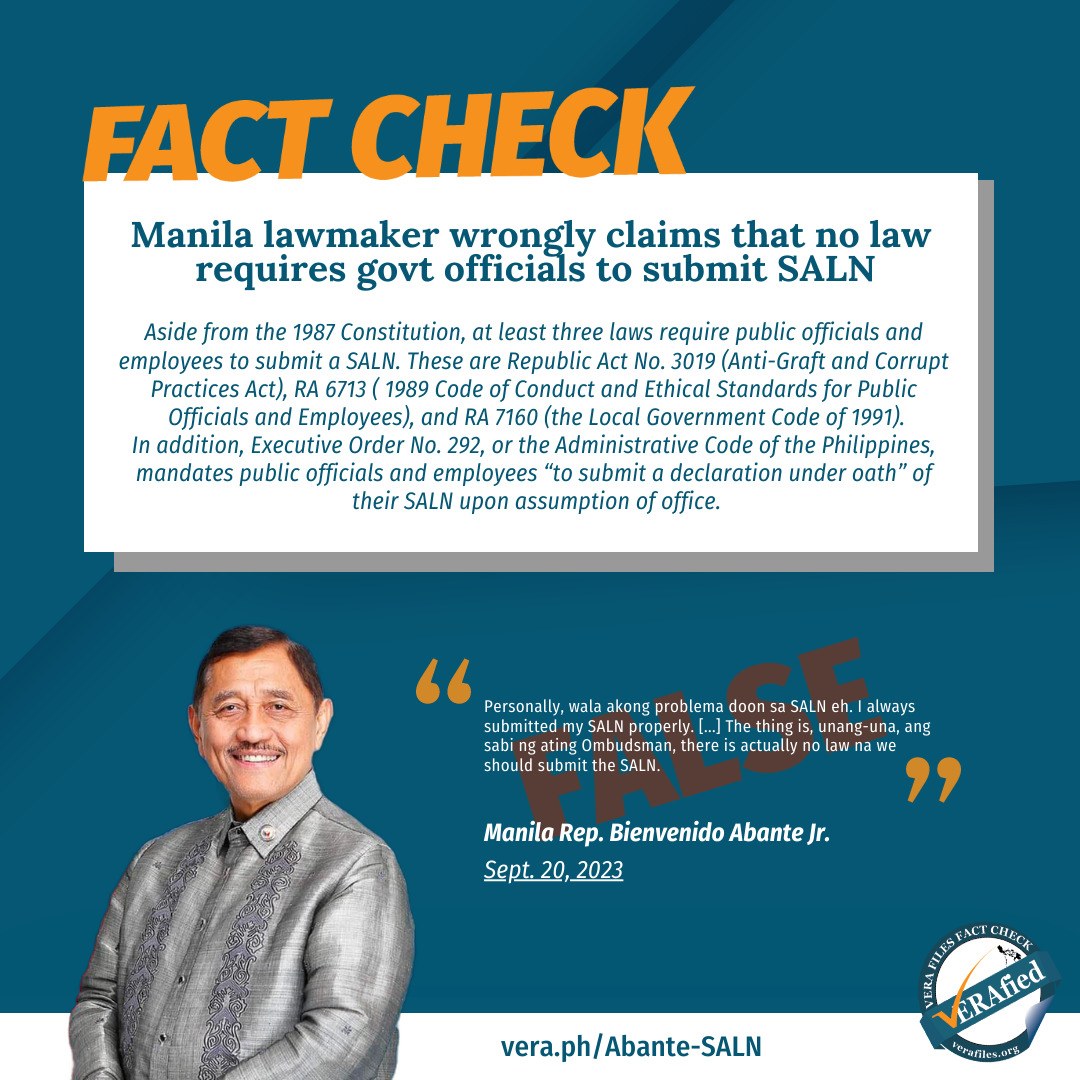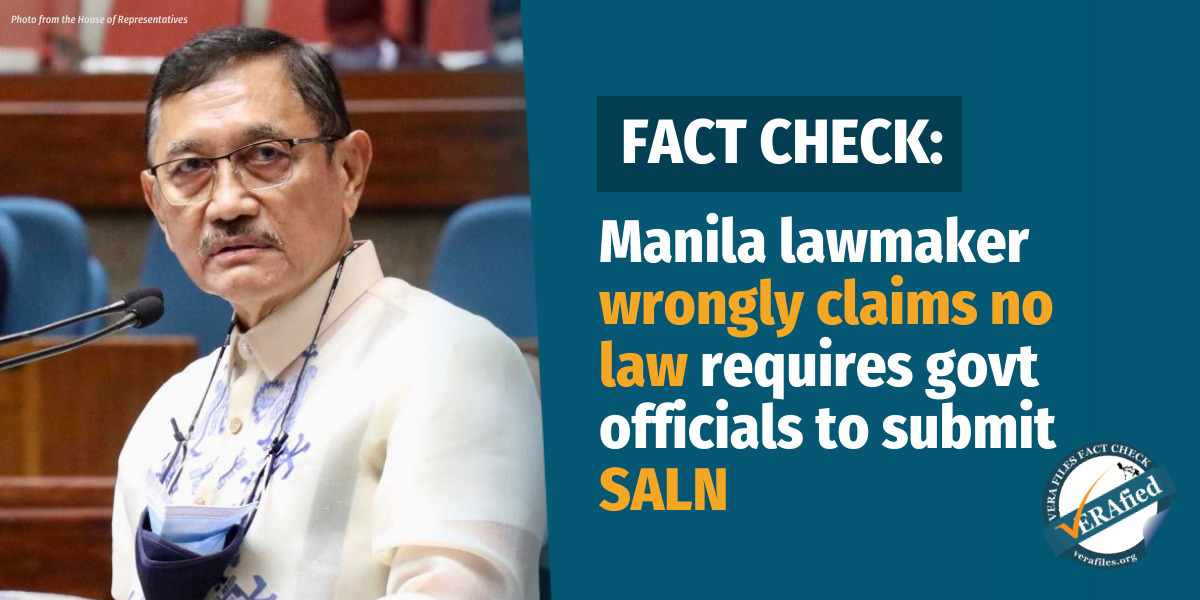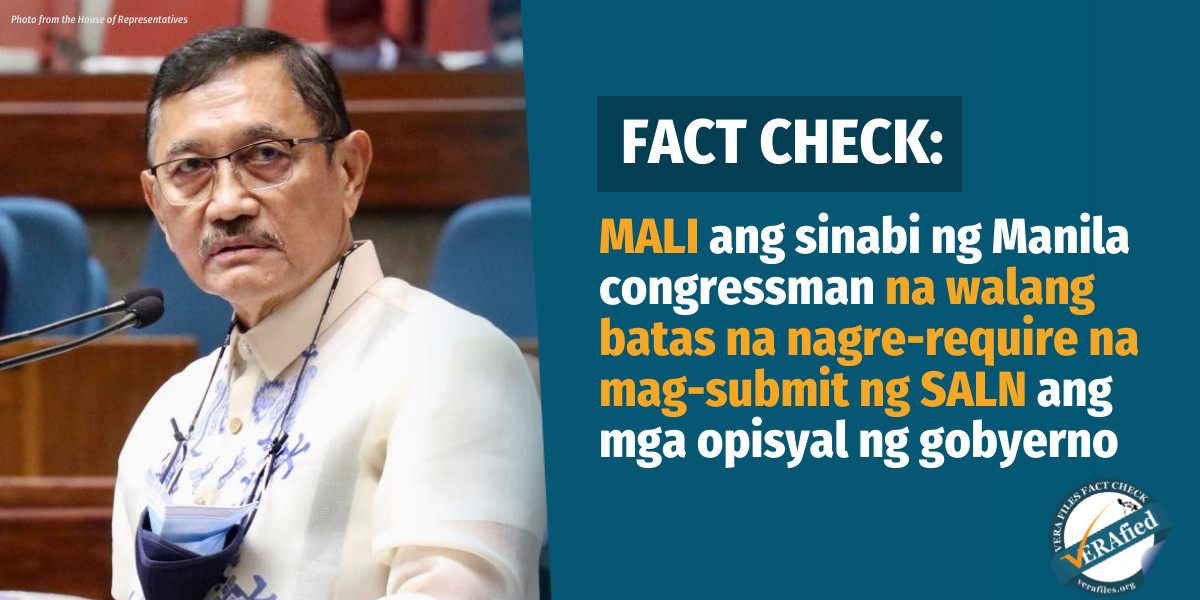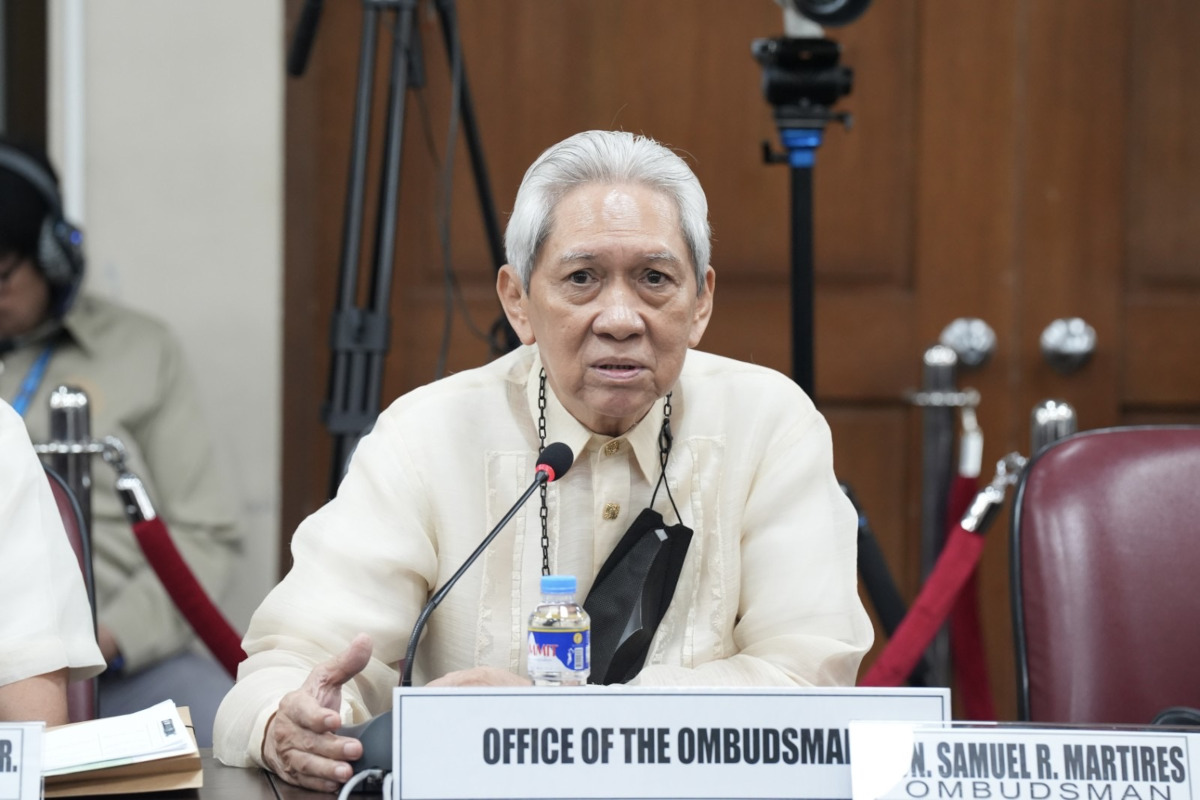During the Sept. 20 plenary debates on the proposed 2024 budget of the Office of the Ombudsman, Manila Rep. Bienvenido Abante Jr., quoting Ombudsman Samuel Martires, claimed that there is no law requiring government officials to submit a Statement of Assets, Liabilities and Net Worth (SALN).
This is wrong.
STATEMENT
GABRIELA Party-list Rep. Arlene Brosas asked Abante Jr., the sponsor of the Ombudsman’s proposed 2024 budget at the House of Representatives, what the Ombudsman thinks of the office’s non-disclosure of SALNs and its “non-proactive” approach toward lifestyle checks.
During a one-minute suspension of the session he requested, Abante was caught by the House of Representatives’ livestream speaking with Martires.
Upon resumption of the session, Abante Jr. replied to Brosas:
“Personally, wala akong problema doon sa SALN, eh. I always submitted my SALN properly. […] The thing is, unang-una, ang sabi ng ating Ombudsman, there is actually no law na we should submit the SALN.”
(Personally, I have no qualms about SALNs. I always submitted my SALN properly. The thing is, first of all, our Ombudsman said that there is actually no law [requiring] that we should submit the SALN.)
Source: House of Representatives, 19th Congress 2nd Regular Session #23 Budget – HB No. 8980 FY 2024 General Appropriations Bill (2-1), Sept. 20, 2023, watch from 47:56 to 48:21
FACT
Aside from the 1987 Constitution, at least three laws require public officials to file their SALN: Republic Act (RA) No. 3019 (Anti-Graft and Corrupt Practices Act), RA 6713 (1989 Code of Conduct and Ethical Standards for Public Officials and Employees), and RA 7160 (Local Government Code of 1991).
Section 17, Article XI of the Constitution mandates public officials and employees to “submit a declaration under oath” of his SALN upon assumption of office.
It said the SALN of the president, vice president, members of the Cabinet, Congress, the Supreme Court and the constitutional commissions and other offices as well as officers of the Armed Forces with general or flag rank “shall be disclosed to the public in the manner provided by law.”
RA 3019, which became law in 1960, requires “every public officer, within 30 days after assuming office” or before April 15 the following year, and upon resignation or expiration of a term of office, to file a “true, detailed sworn statement of assets and liabilities, including a statement of the amounts and sources of his income, the amounts of his personal and family expenses and the amount of income taxes paid for the next preceding calendar year.”
RA 6713 requires public officials and employees to accomplish and submit a SALN under oath, stating that the public “has the right to know their financial and business interests.”

The Local Government Code of 1991 states the same obligation in Section 91, Title III. However, on top of filing a SALN and declaring financial and business interests, the law requires officials and employees of local government units to list their relatives within the fourth civil degree of consanguinity or affinity in government service.
In addition, Executive Order No. 292, or the Administrative Code of the Philippines, mandates public officials and employees “to submit a declaration under oath” of their SALN upon assumption of office.
BACKSTORY
The Office of the Ombudsman under Martires’ leadership tightened the rules of access to SALNs on Sept. 1, 2020. It said that no copy of a SALN will be given to an individual without a notarized letter of authority from the concerned public servant.
The Ombudsman also outlined three conditions for successfully granting access to a SALN. These are:
- If the requester is the public servant or his duly authorized representative;
- The request comes from a court order for a pending case; and
- If the request is made by the Office of the Ombudsman’s Field Investigation Office/Bureau/Unit for its fact-finding investigation.
On Oct. 16, 2021, the Philippine Center for Investigative Journalism reported on the Office of the Ombudsman’s several proposed revisions to RA 6713 that it had submitted to Congress, and the red flags raised by transparency advocates on the draft bill.
Among these proposed revisions was to amend Section 8(D) of RA 6713, stating that “no further commentaries” should be added to the media’s reportage of a person’s SALN, and that the media’s use “shall be strictly limited to reporting of facts provided in the statement.”
The proposed amendment drew concerns from various groups, including the National Union of Journalists of the Philippines, which reminded the Ombudsman of the vital role of media in seeking accountability and transparency from government officials.
Martires dismissed concerns over the proposed revisions, stating that these were “nothing more than an expansion for purposes of clarity, of provisions already existing in the law,” according to an Inquirer.net report.





